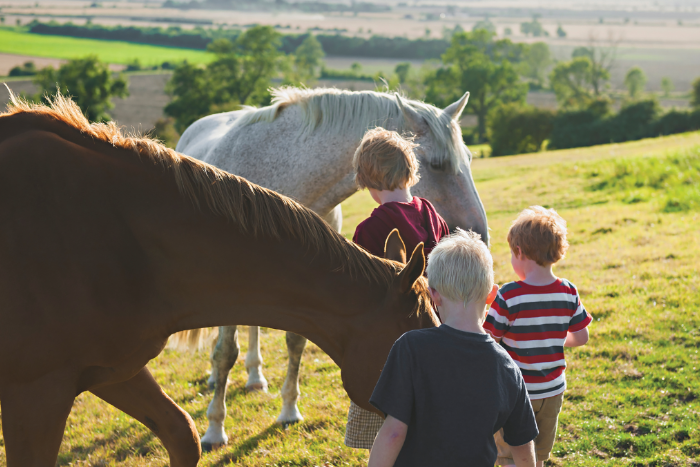
Horses good for commons’ biodiversity
By Rebecca Poole
Horse owners are being encouraged to consider keeping their equines on Lincoln’s commons as falling numbers may affect the city’s biodiversity.
“Anybody who lives in the city of Lincoln has got the right to keep and graze a horse on the common of their choosing,” said Barbara Woolfenden, Lincoln Commons Horse Association (LCHA) Chair.
The Association has seen the horse population decreasing on the West Common, with very few left on the South Common and the Cow Paddle being unused for years,
“The council has some concern about that because the less horses, the more overgrowth. Even the wildlife people are worried, especially about the South Common because it encourages more brambles and things like that.”
LCHA was created in 1983 by a group of determined horse owners to protect the city’s common land after plans arose to abolish the 1915 Lincoln Commons Act. Together with the Open Spaces Society, the group fought the plans and helped the formation of the 1985 Lincoln Commons Act which established the current grazing rights, laws, and bylaws.
However, in more recent years, less people have been choosing to graze their horses on the commons partly due to the increased costs of horse ownership after the Covid pandemic.
“I personally think it’s because horses are very expensive, they’re very time-consuming, and like most sporting activities, they’re decreasing,” explained Barbara.
“It’s a lot of hard work looking after a horse and a lot of money, but I must admit that the common is the more affordable way of doing it. You haven’t got to pay livery and at the end of the day, the grazing is free. The council cannot charge you to graze, that is the right of a Lincoln person, to graze a horse.”
Before occupying the common, owners must first have their horse vetted and fully registered with City of Lincoln Council.
“The vetting is something that the Horse Association really strived for because that was to try and keep the herd healthy, although it can’t stop everything, you can see anything that’s obvious in the vetting.”
Additional costs to be considered are vet bills, insurance, worming, dental care and a farrier, who makes and fits shoes for horses.
“After you have your horse vetted, you have to go to a solicitor and you have to say you’re inhabiting a household and it’s your horse and all that, then you have to provide photographic evidence of yourself and the horse, and the microchip number and passport.
“It’s not sort of just come and put your horse on, there is a protocol. You return the completed forms and required documents to the city council and then you pay a yearly fee, but again, the grazing is actually free.”
For more information about keeping horses on the commons, visit www.lincoln.gov.uk/resident/animals-pests/7
